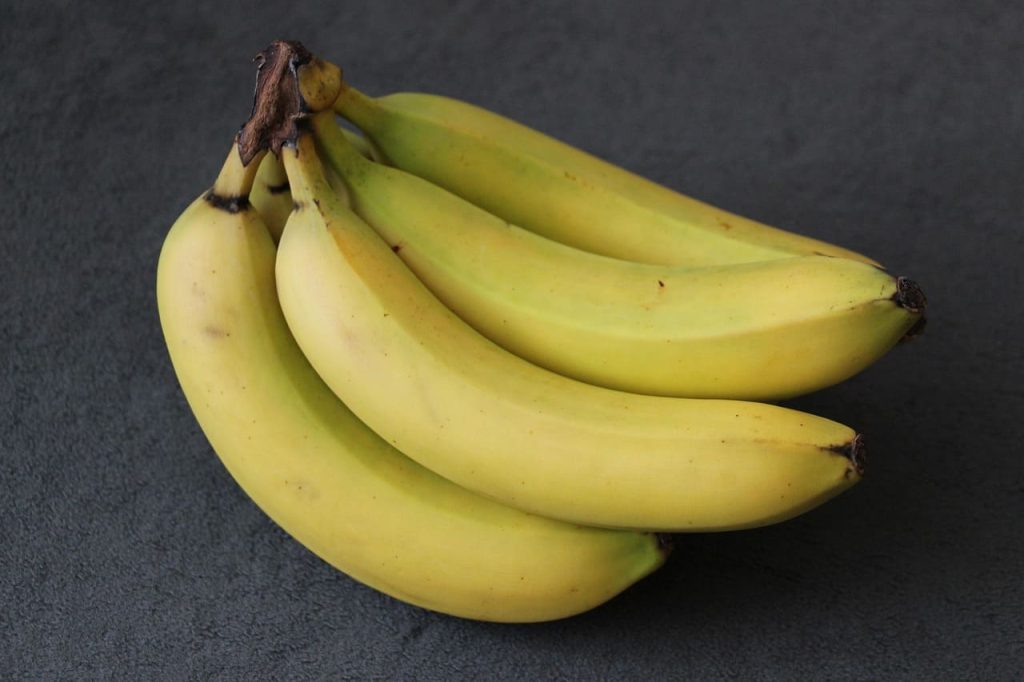
Bananas are one of the oldest and most popular fruits in the world, with a fascinating history spanning thousands of years. Bananas are highly nutritious and offer numerous health benefits. Because of their high potassium content, bananas help balance sodium and avoid water retention, which can result from consuming salty meals.
Additionally, the fiber in bananas can help relieve constipation; the more waste you eliminate from your body, the less bloated you will feel. One study showed that women who ate a banana before each meal bloated less than those who didn’t. Experts think that’s because they deliver certain gut bacteria that help calm gas production in the belly.
Additionally, resistant starch, a type of carbohydrate that supports beneficial gut flora, is abundant in bananas, particularly greener varieties. Additionally, having a large population of beneficial bacteria in your stomach might help lessen bloating and gas.
Fun Facts About Banana History
🍌 The first recorded mention of bananas is in Buddhist texts (6th century BCE).
🍌 Alexander the Great encountered bananas in India (327 BCE).
🍌 In the Victorian Era (1800s), bananas were a luxury food in Europe and America, often eaten with a knife and fork.
🍌 The “Banana Republic” term originated from the political influence of U.S. fruit companies in Central America.
Here are some key advantages of eating bananas:
1. Packed with Vital Nutrients rich in potassium, which lowers blood pressure and promotes heart health. includes fiber, magnesium, vitamin B6, and vitamin C. gives rapid energy by supplying natural sugars (glucose, fructose, and sucrose).
2. Promotes Heart Health Potassium lowers the risk of stroke and aids in maintaining normal blood pressure. Antioxidants and fiber support cardiovascular health.
3. Facilitates Digestion
Contains resistant starch and pectin, two types of dietary fiber that support gut health and ward off constipation. feeds good intestinal bacteria and serves as a natural prebiotic..
4. Increases Vitality Bananas are excellent for sports because their natural sugars, or carbohydrates, give you an immediate and long-lasting energy boost. helps restore electrolytes (magnesium, potassium) after physical activity. 5. Aids in Blood Sugar Regulation
Nutritional Value of Bananas (Per 100g)
Bananas are a nutrient-dense fruit, providing carbohydrates for energy, essential vitamins, minerals, and fiber. Here’s a detailed breakdown of their nutritional content:
Macronutrients
- Calories: 89 kcal
- Carbohydrates: 22.8 g
- Sugars: 12.2 g (natural fructose, glucose, sucrose)
- Fiber: 2.6 g (supports digestion)
- Protein: 1.1 g
- Fat: 0.3 g (very low)
Vitamins
- Vitamin C: 8.7 mg (11% DV) – Boosts immunity & skin health
- Vitamin B6: 0.4 mg (20% DV) – Supports brain function & metabolism
- Folate (B9): 20 mcg (5% DV) – Important for cell growth
- Riboflavin (B2), Niacin (B3), Thiamine (B1): Small amounts
Minerals
- Potassium: 358 mg (10% DV) – Regulates blood pressure & heart function
- Magnesium: 27 mg (7% DV) – Supports muscle & nerve function
- Manganese: 0.3 mg (13% DV) – Aids metabolism & bone health
- Small amounts of iron, calcium, phosphorus, and zinc
Other Beneficial Compounds
- Antioxidants (dopamine, catechins) – Reduce oxidative stress
- Resistant starch (in unripe bananas) – Improves gut health
- Prebiotics – Feed healthy gut bacteria
Health Benefits Based on Nutrients
✔ Energy Boost – Quick carbs for workouts & recovery.
✔ Heart Health – Potassium lowers blood pressure.
✔ Digestive Health – Fiber prevents constipation.
✔ Blood Sugar Control – Low to medium GI (better when slightly unripe).
✔ Mood & Brain Support – B6 helps produce serotonin.
Nutritional Differences: Ripe vs. Unripe Bananas
| Nutrient | Ripe (Yellow) Banana | Unripe (Green) Banana |
| Sugar | Higher (sweeter) | Lower (more starch) |
| Starch | Converts to sugars | High in resistant starch |
| Digestibility | Easier to digest | May cause bloating |
| Glycaemic Index (GI) | Higher (~51-60) | Lower (~30-40) |
